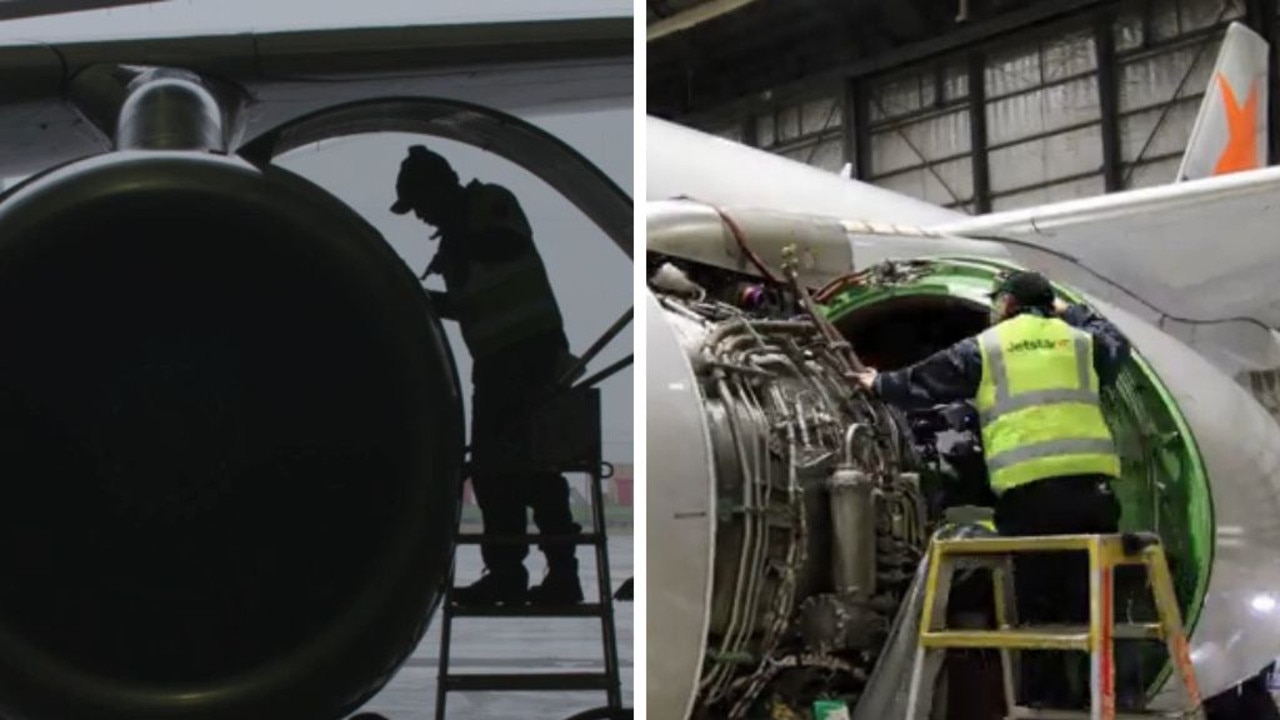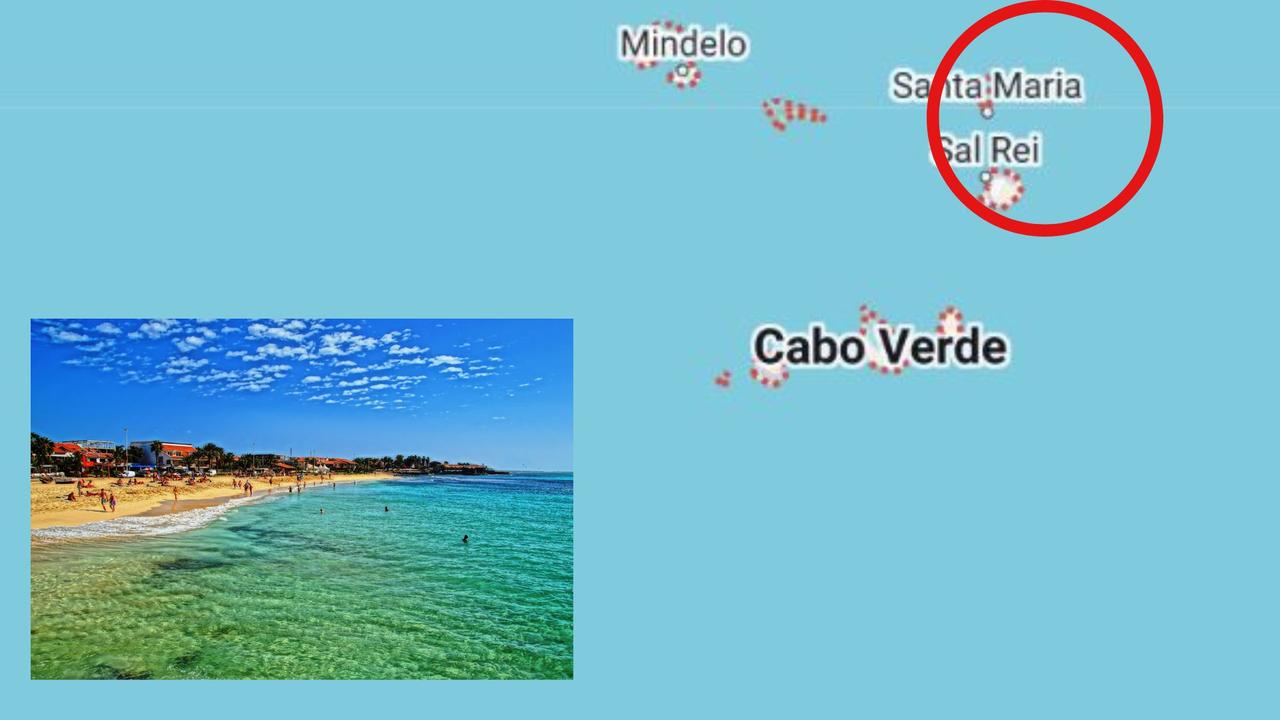How coronavirus could have a multibillion-dollar impact on Australia’s tourism industry
Coronavirus is making the world quickly see how much they depend on China. In terms of tourism, no one spends money like the Chinese.

China has grown to become Australia’s largest trading partner, with a single sector – the tourism industry – bringing in around $12 billion from visiting Chinese nationals each year.
That’s no drop in the ocean. The travel industry – both here and around the world – is more reliant on Chinese travellers now than ever before.
But the immediate impact of coronavirus – which has claimed more than 300 lives and infected close to 15,000 others – has forced the world to quickly react to the sprawling health crisis.
On Friday, the World Health Organisation (WHO) declared coronavirus a global health emergency. The response from US health officials was to advise citizens to stop all travel to China. Within 24 hours, Australia and New Zealand followed their lead in an attempt to stop the spread of coronavirus.
On Saturday afternoon, Prime Minister Scott Morrison announced unprecedented new control measures that will see all non-Australians travelling from mainland China barred entry at the border. The official travel advice was also bumped up to ‘Level 4’ - advising that Australians “do not travel” to mainland China.
RELATED: How to stop the spread of ‘pandemic’ coronavirus
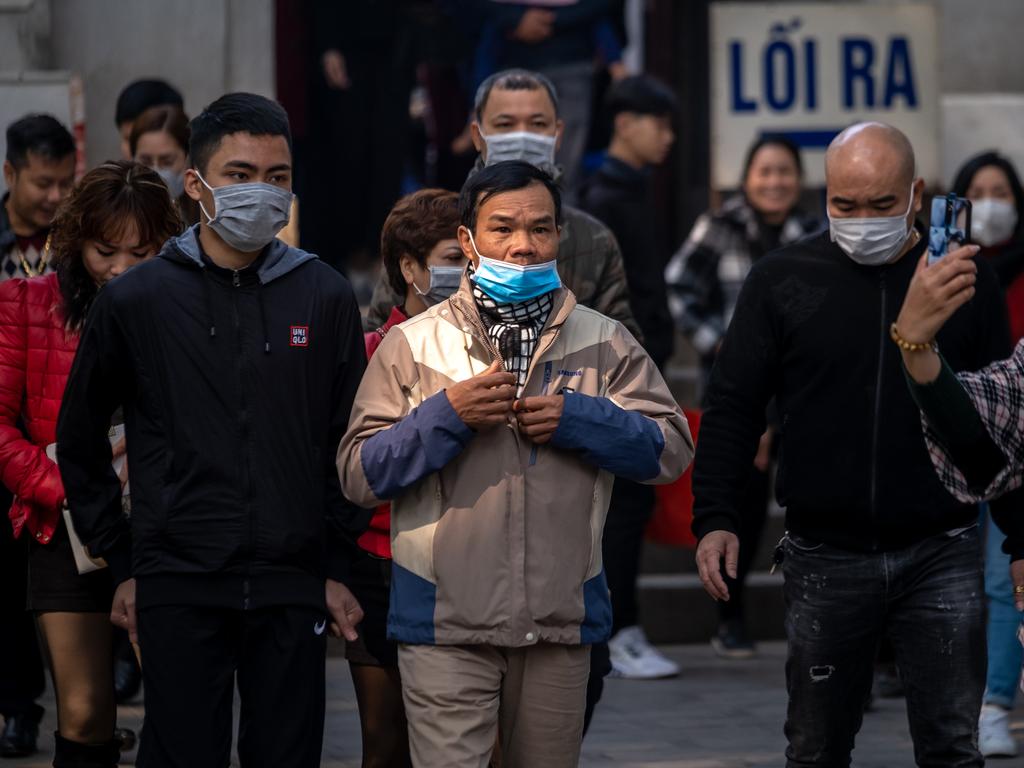
The tough new measures have rippled in to Hong Kong, where tourism has been subjected to a turbulent year for foreign visitors because of violent political protests. But the virus has now severely dented cross-border travel, adding a double blow to the city’s tourism sector. Some local tour operators have said the perfect storm has meant not a single booking has been made since July 2019.
But as flight routes close, borders tighten and holiday-makers question their plans to travel, the global response to coronavirus is set to have a multibillion-dollar impact on one of our most lucrative industries: Chinese tourism.
RELATED: Australian airport staff may walk off the job
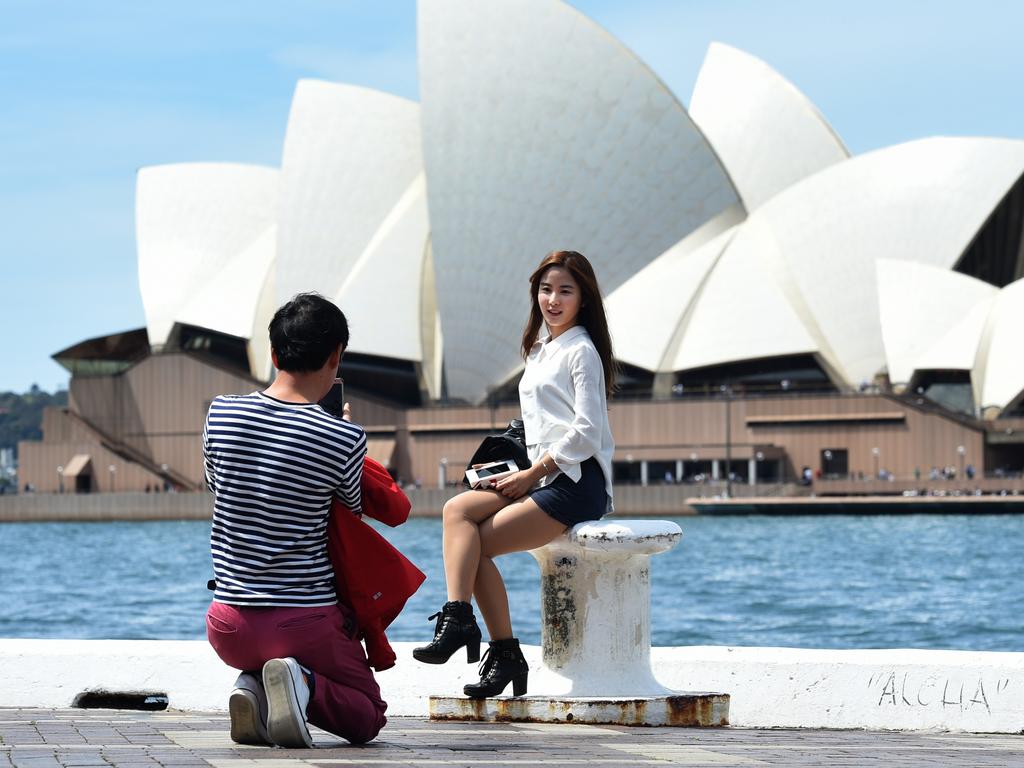
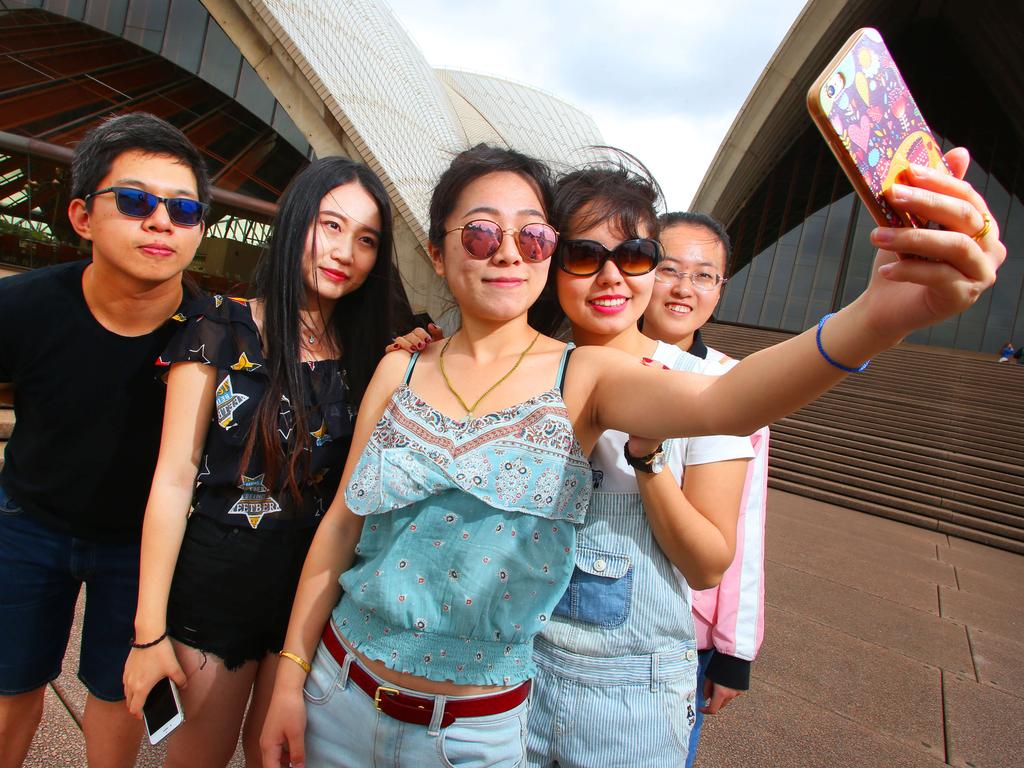
RELATED: Drastic measures cruise companies are making to avoid coronavirus zone
Businesses around the world have grown increasingly reliant on big-spending Chinese tourists and are now facing the harsh reality that some of our most profitable regions will cop a heavy hit to the tune of tens of millions of dollars.
Hotels, airlines, casinos and cruise operators are among the industries suffering the most immediate repercussions, especially with the outbreak occurring during the Lunar New Year, one of the biggest travel seasons in Asia.
But the world’s reaction to coronavirus means a lot more to the world economy than it did when the SARS outbreak struck nearly two decades ago.
In 2003, China accounted for 4.3 per cent of world economic output. Last year, it accounted for 16.3 per cent, according to the International Monetary Fund.
Tourism from China was already down before the virus hit due in part to the Hong Kong protests and the trade dispute between Beijing and Washington. But about 134 million Chinese still travelled abroad in 2019, up 4.5 per cent from a year earlier, according to official figures.
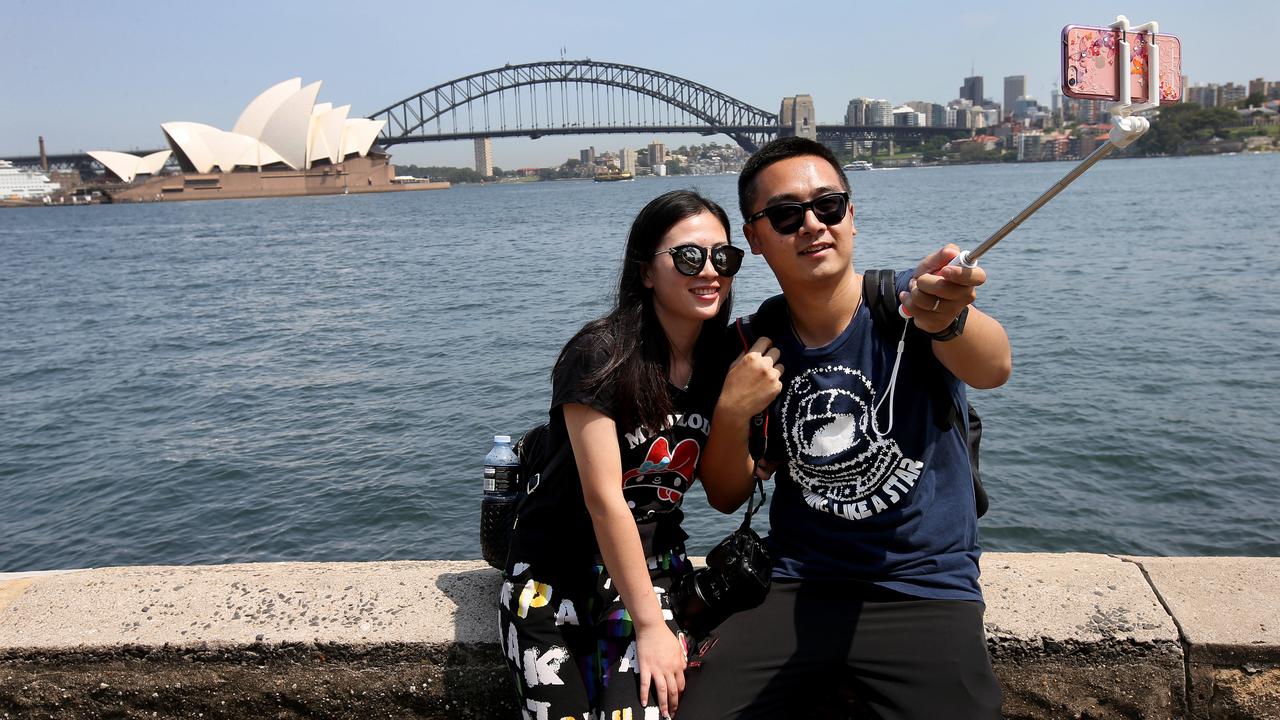
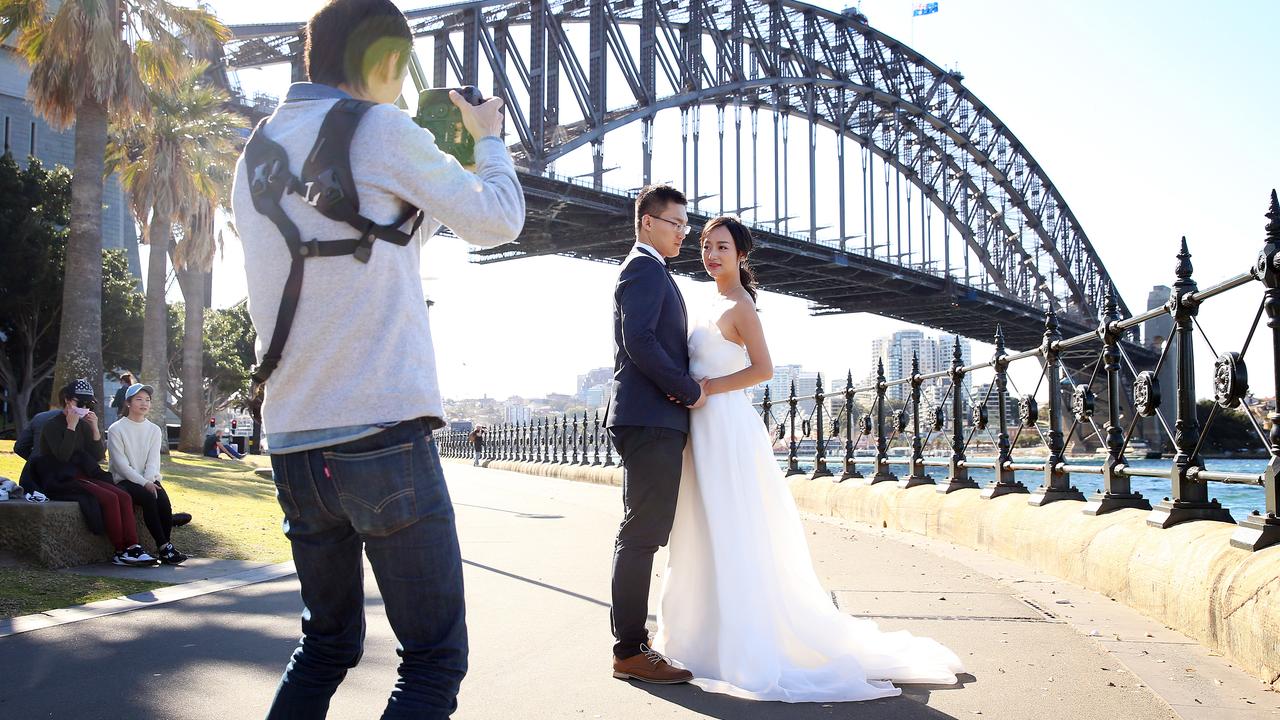
In Australia, Chinese tourists are second only to New Zealand tourists in terms of numbers visiting our shores. But the Chinese are bigger spenders and stay an average of 43 nights per visitor.
In 2017/18, 1.4 million Chinese visitors travelled to Australia, an increase of 12.9 per cent from the year before.
According to Budget Direct, the most popular destinations to visit are Sydney, where more than 50 per cent stay, followed by Melbourne and Brisbane.
“Hot spots” that appeal to Chinese tourists rather than our own will also take a big hit.
The latest IVS data shows a 9% increase in tourism spend from the USA, which is great news off the back of the #Dundee campaign.
— Tourism Australia (@TourismAus) October 8, 2019
Read more about the highlights here: https://t.co/qaeT4gvL0x from @Birmo.
See all the results here: https://t.co/PtiyoPTCsN. pic.twitter.com/BGNvcVFY2N
Certain isolated areas around the country – including Lake Tyrrell in Victoria and the Pink Lakes in WA – have lured many Chinese tourists to venture beyond Sydney and the Great Barrier Reef, and they spend good money to do so.
Overall, holiday-makers splurged around $113.4 billion in Australia last year. Of the international and even domestic tourists who explored our shores, a growing number chose to add in a trip to regional destinations beyond our capital cities.
RELATED: US citizens warn ‘do not travel to China’
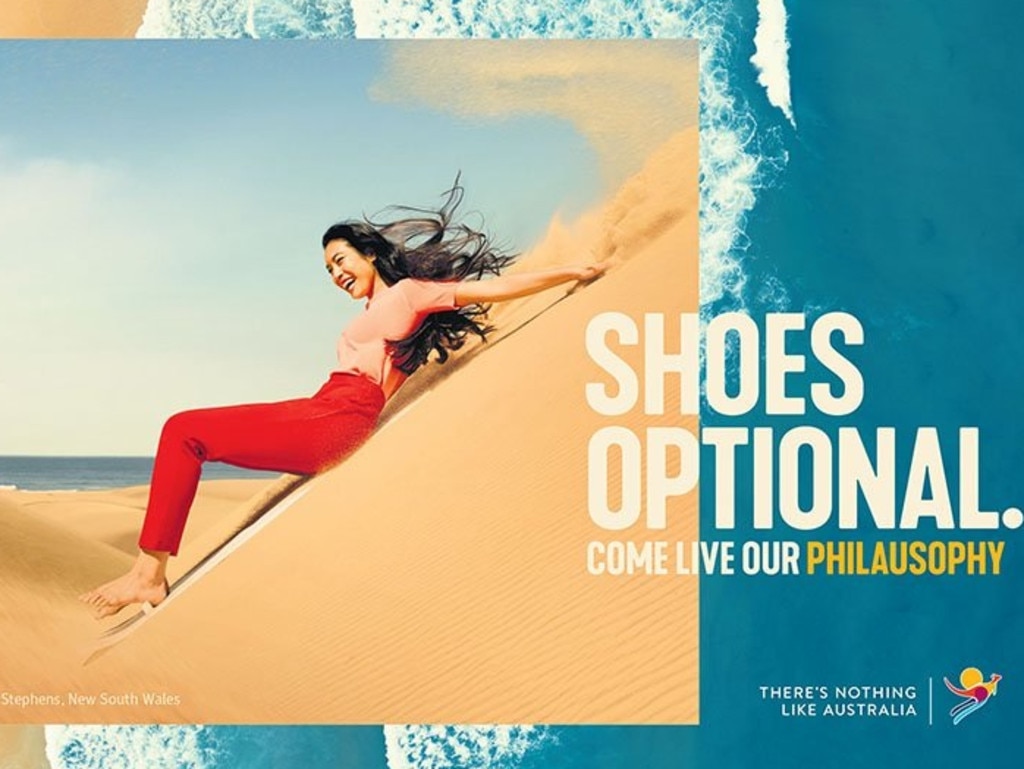
“More and more Australians are turning to nature for their holidays, whether it be kayaking near Cradle Mountain in Tassie, cycling in the Blue Mountains in NSW or bushwalking in the Bungle Bungle Range in WA,” Minister for Trade, Tourism and Investment Simon Birmingham said in 2018, following the growing trend of visitors venturing off the beaten track.
For places like Pink Lake, around 20 per cent of passengers use local services like Geraldton Air Charter to access the attraction were from mainland China.
“It is quite devastating to think we have already had about 105 people cancel tours to the Pink Lake,” managing director Wendy Mann told the ABC, noting she may need to lay off staff if bookings continued to decline.
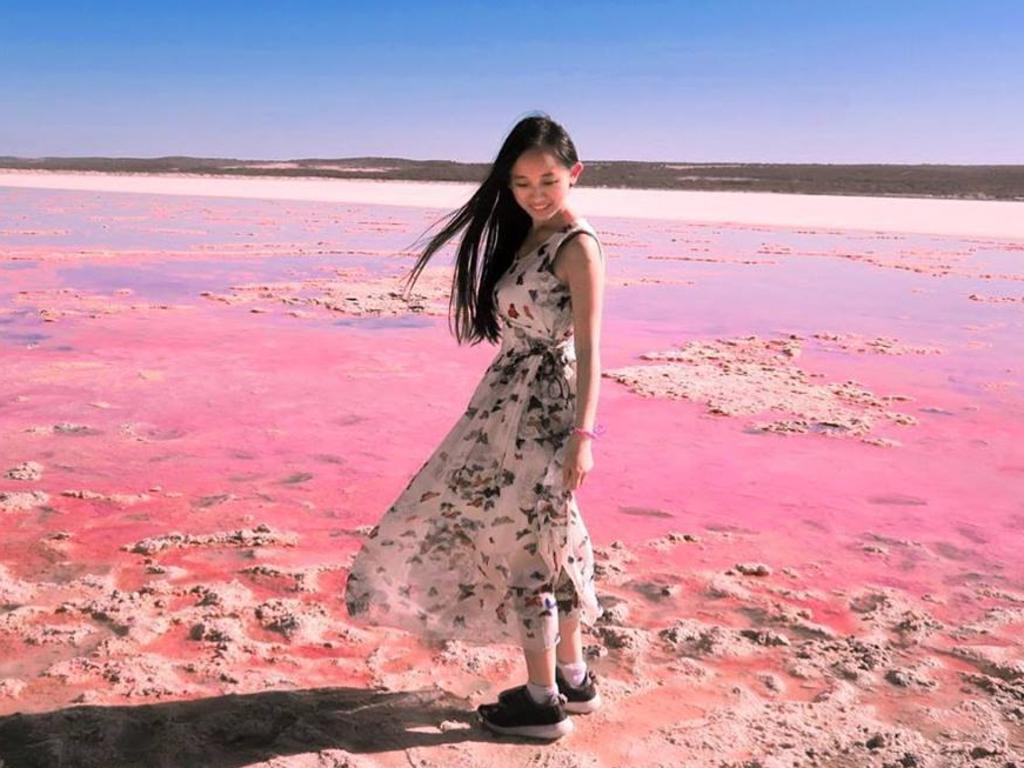
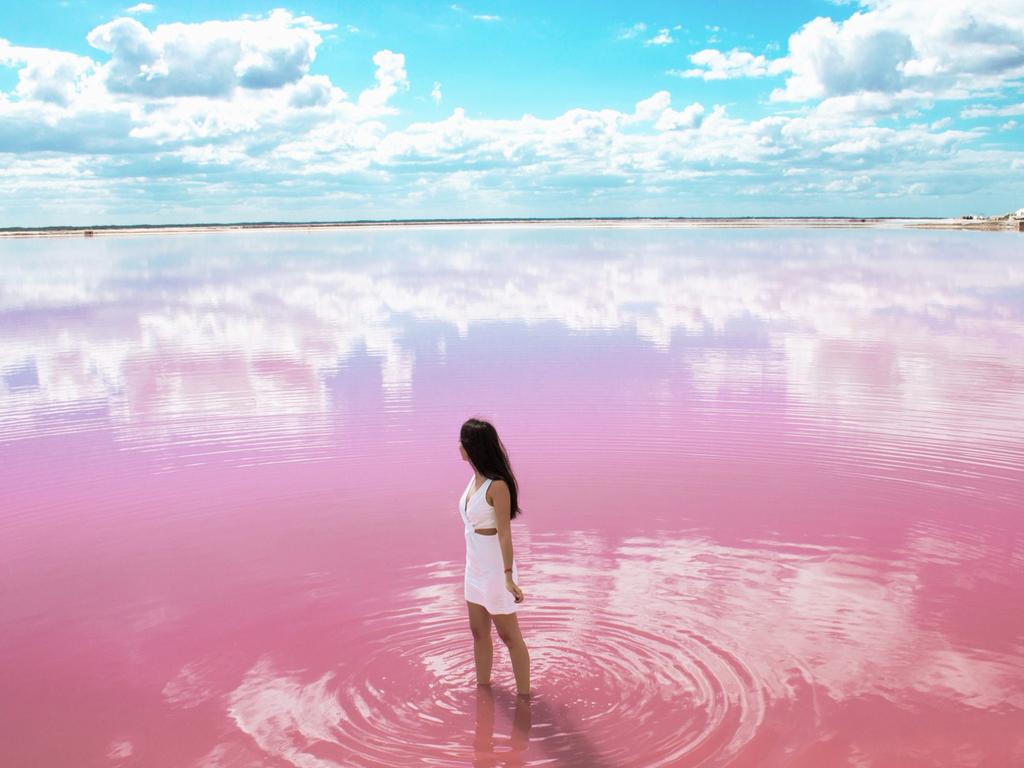
In 2018, Chinese nationals spent about $11.2 billion in Australia compared with $3.7 billion from the United States, $3.5 billion from the United Kingdom, $2.5 billion from New Zealand and $1.8 billion from Japan.
And this year, the industry expected an even bigger spend until coronavirus.
Before the outbreak, the China Outbound Tourism Research Institute predicted some seven million Chinese would travel abroad for the Lunar New Year this year, up from 6.3 million in 2019. Hong Kong, Thailand, Japan and Vietnam were expected to be the top destinations, along with big spenders flocking to cities like London, Milan, Paris, Sydney and New York.
Suddenly, the world started to realise how quickly it depends on China.
AUSTRALIAN TOURISM AND RETAIL WILL BE HARDEST HIT
Tourism, education and retail will likely be the hardest hit by coronavirus, with estimates that a two-month halt on package tours from China could cost Australia at least $1 billion in services exports.
Industry figures show that February and March are two of the busiest months for Chinese travellers to Australia, making up about one quarter of annual arrivals and a growing number of “tourist shoppers”.
“Reduced Chinese tourism will impact foot traffic and disproportionately impact sales in flagship assets, CBD assets and certain DFO (outlet) centres,” a UBS report noted, adding the coronavirus impact is not likely to continue and sales are likely to pick up again
But if there are business bankruptcies during the slow time then it will impact retail occupancy rates.
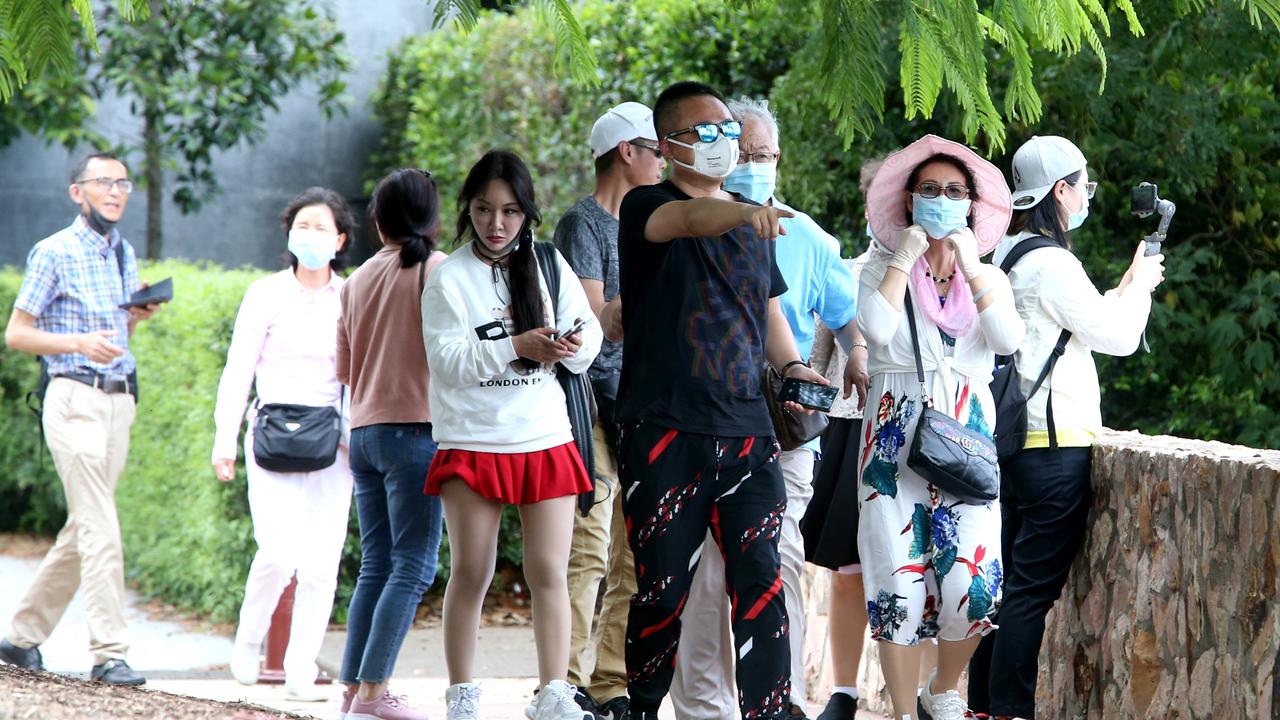
In Western Australia, the tourism industry has already been hit by mass cancellations of Chinese tourists because of the outbreak, which in some places has already prompted lay-offs.
According to the ABC, a trial of direct Perth-to-Shanghai flights – which launched just a fortnight ago – resulted in a healthy surge of visitors. But the current ban on “package vacations” has meant mass cancellations, with one restaurant claiming they lost more than 1000 Chinese tourists in just two days.
“Normally by this time of the week, predictions for next week we would have had bookings in excess of thousands, but at this stage we have got less than 100,” Peter House, who manages the Lobster Shack at Cervantes, 200 kilometres north of Perth, told the ABC.
In Queensland, much of the same had been noted for the northern region of the state.
Tourism Tropical North Queensland CEO Mark Olsen said local operators had reported more than 1000 cancellations, with some local operators predicting coronavirus will have a worse impact on the industry than the SARS virus.
THE HIT TO TOURISM WILL SOAR INTO THE ‘BILLIONS’
Accounting for roughly one-sixth of the world’s economic output, Chinese tourists spend jaw-dropping amounts of money when travelling abroad.
Globally, they spend around $258 billion a year, according to the World Tourism Organisation – nearly twice what Americans spend.
Economists and tourism industry officials say the biggest threat so far is to China’s closest neighbours, with the US and Europe likely to face major repercussions only if the coronavirus outbreak is long-lived. In Thailand, however, a favourite destination for Lunar New Year travel, officials estimate potential lost revenue at 50 billion baht ($1.6 billion). Typically, the country will bring in around $18 billion annually from Chinese sightseers.
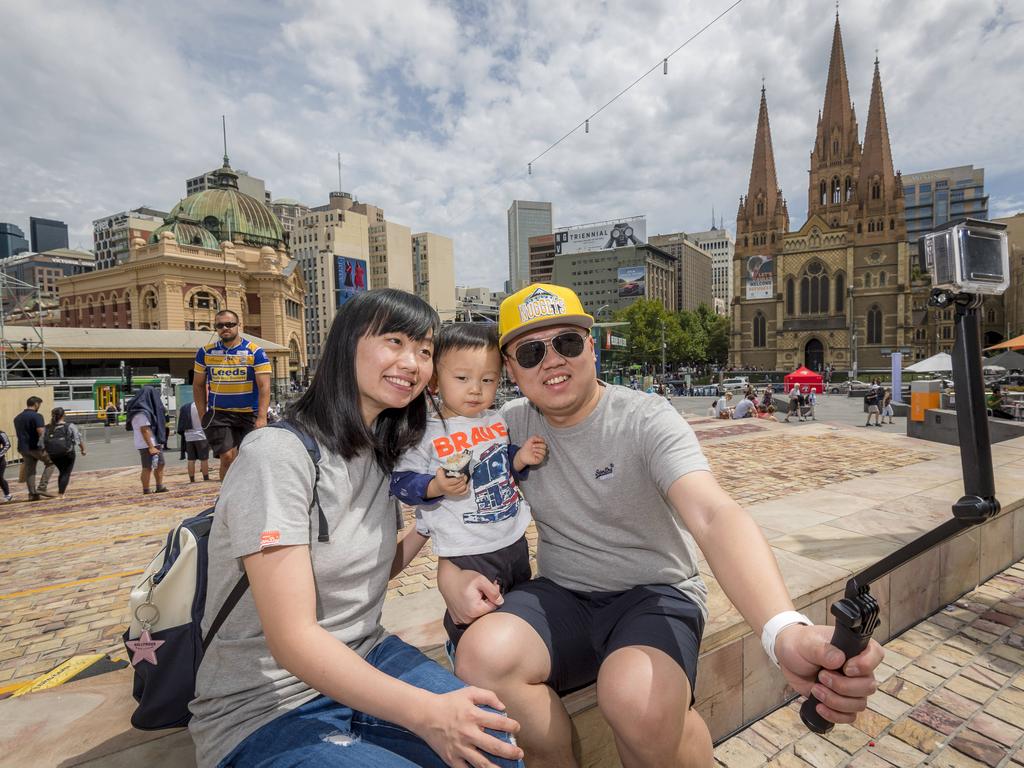
Visitors from mainland China to the autonomous Chinese gambling capital of Macau were down 80 per cent in January from a year earlier, a massive blow to a regional government that depends on gaming revenue.
Gaming and lodging operators in Macau reported higher-than-expected cancellations over the weekend as the death toll from coronavirus rose and the Chinese Government extended travel restrictions, according to Instinet analyst Harry Curtis.
“Cancellations soared across all of the properties we contacted,” Mr Curtis told the Associated Press.
“Pessimism rose on how long it could take for business to recover.”
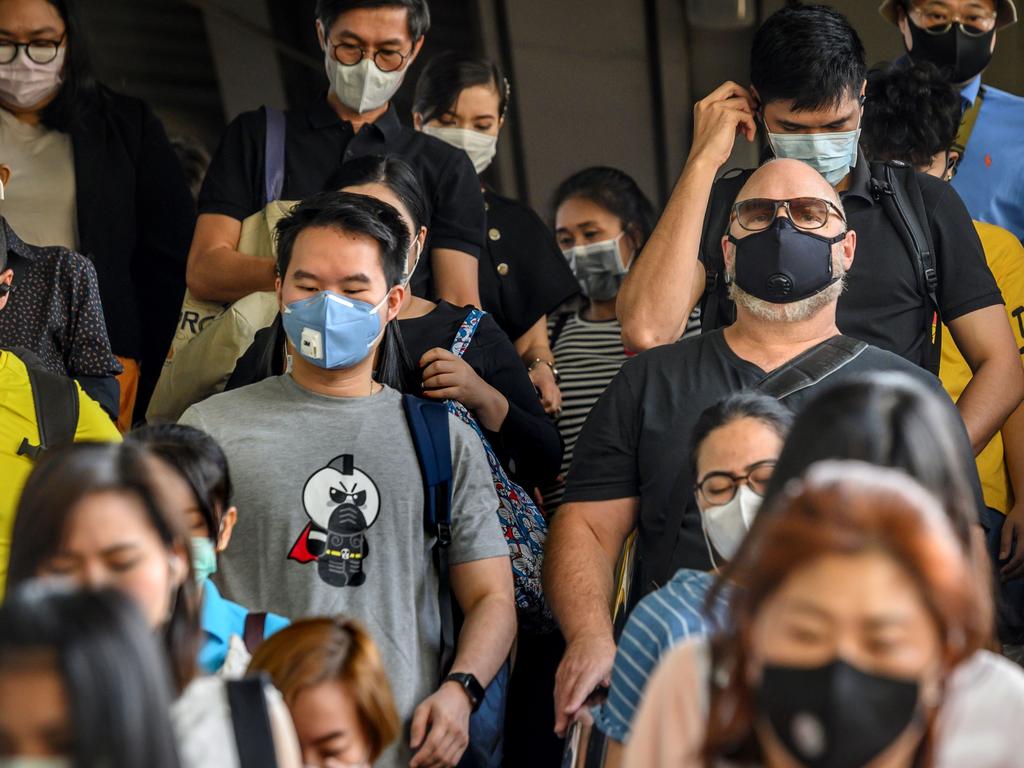
RELATED: Qantas to send evacuation flight to China
Travel agencies in China were told to cancel group tourism, and governments around the region were restricting travel from the virus epicentre Wuhan before shutting the city down entirely – only arranging the evacuation of some foreigners stuck in the city.
The outbreak comes just as hopes were rising that Chinese tourism to the US would start to recover following two years of decline due to the prolonged trade dispute between the two countries.
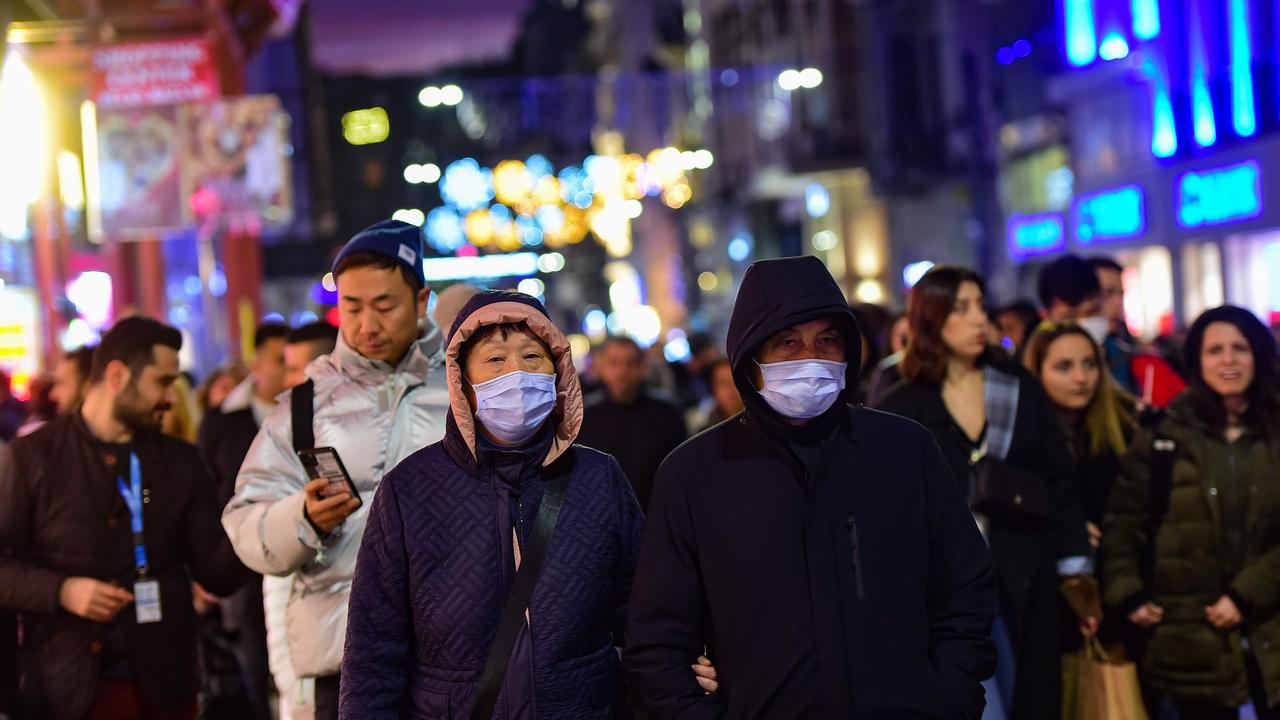
In 2018, travel from China to the US fell for the first time in 15 years, according to the National Travel and Tourism Office, which collects data from US Customs forms. The office forecast a further decline of 5 per cent in 2019 but predicted a return to growth in 2020 and beyond.
China remains the fifth-largest source of foreign tourism to the US behind Canada, Mexico, the U.K. and Japan. Nearly three million Chinese travelled to the US in 2018, spending more than $36 billion.
HOW WILL THE TOURISM INDUSTRY RECOVER
How long the outbreak lasts and whether the Chinese Government will extend travel restrictions to major cities such as Shanghai will determine the severity of the impact on global tourism.
Australians are being told to reconsider any plans to travel to China, with the Government’s Smart Traveller website upgrading its travel advisory warning for the rest of China.
In the US, the warning is even higher – a level 4 – which advises citizens to not travel to the country.
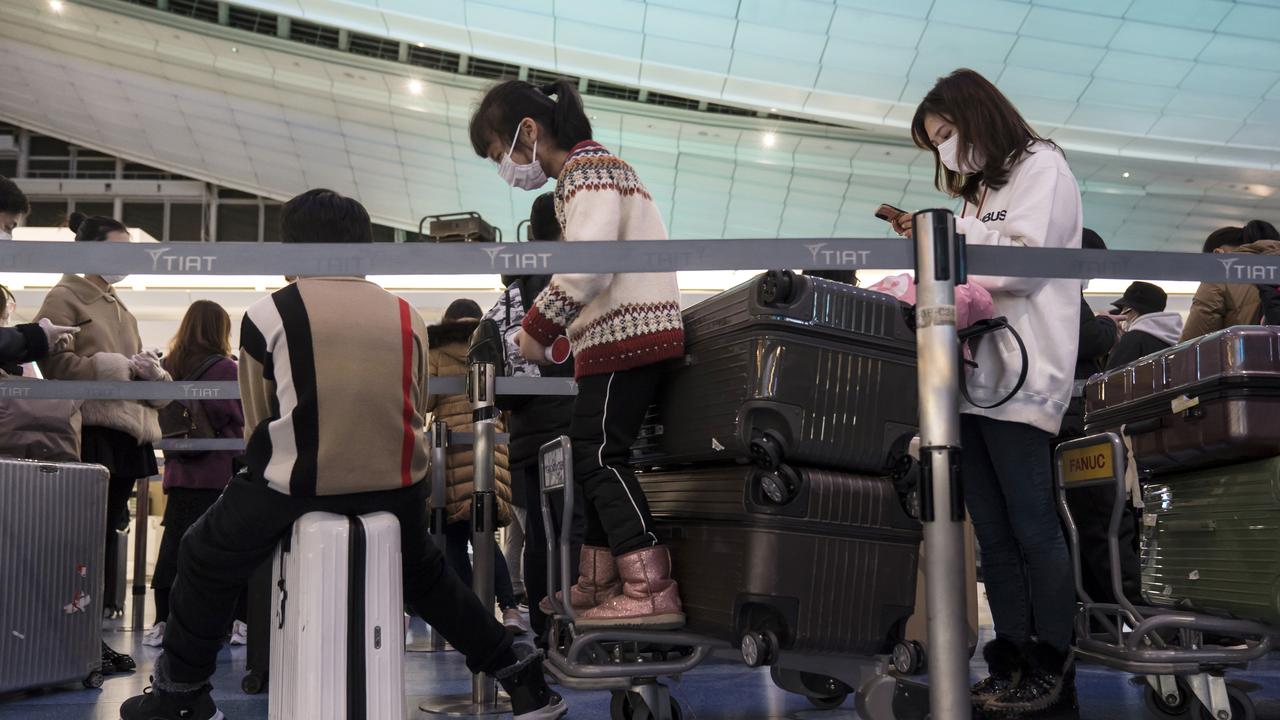
“Any increase in domestic and international travel restrictions, as well as increasing apprehension from travellers, could mean a significant decline in global tourism if the spread of the virus continues to exacerbate,” Ben Cordwell, travel and tourism analyst at GlobalData, told Luxury Travel Adviser.
The tourism industry is already facing several headwinds globally, including the UK’s Brexit withdrawal and geopolitical tensions between powerful nations, and experts say this combined with coronavirus could mean a tough year ahead for international tourism.
– with AP


